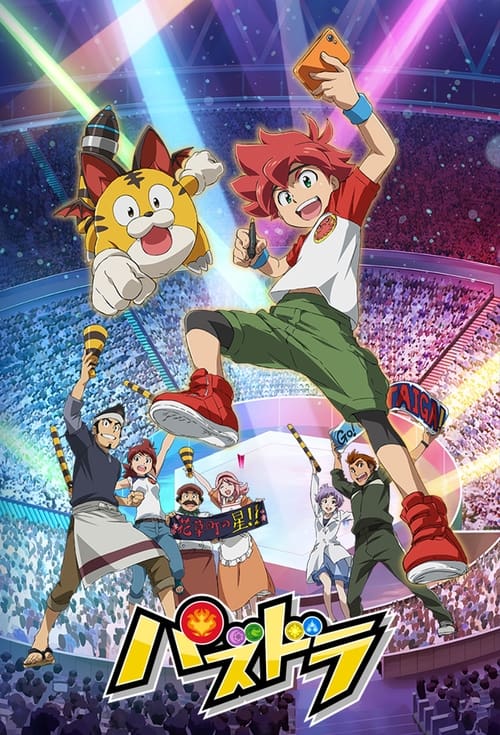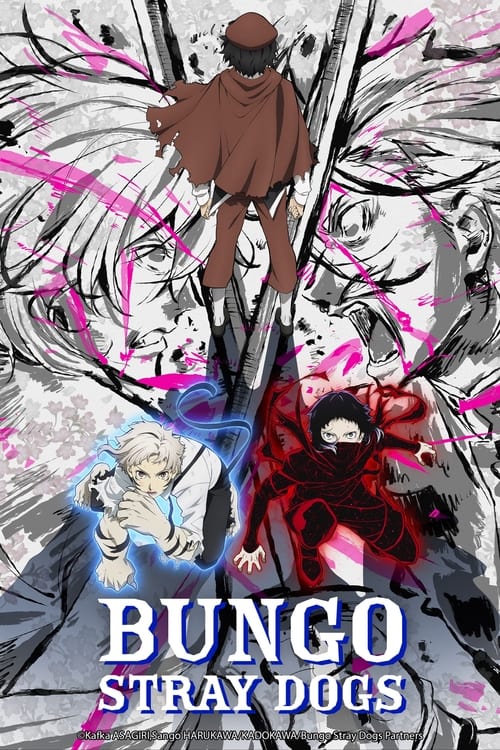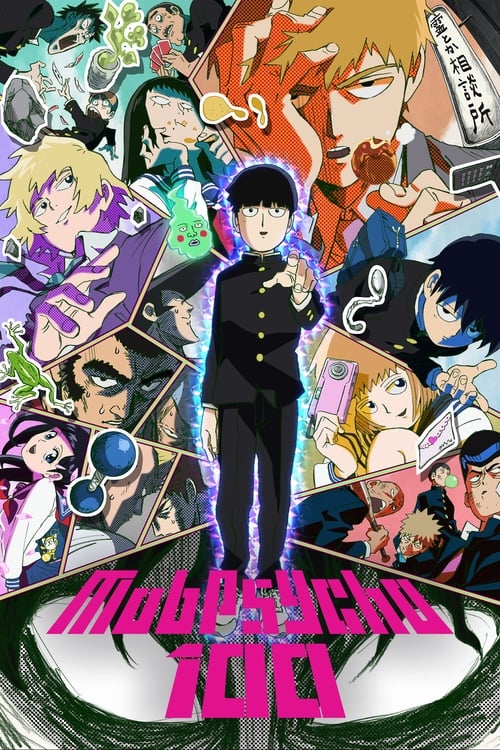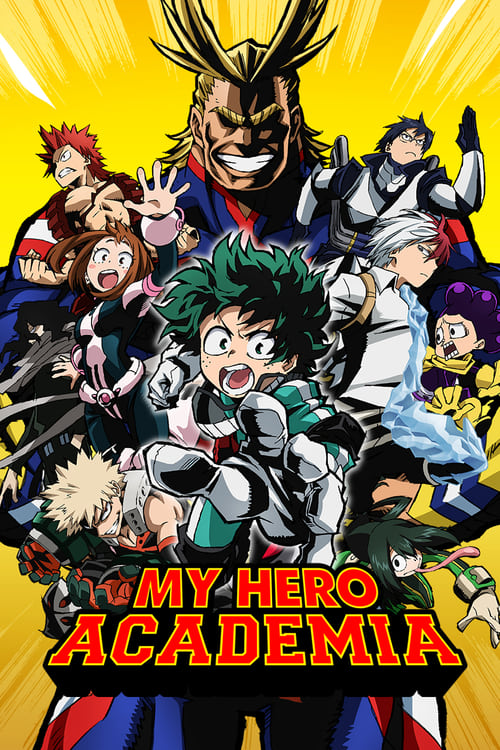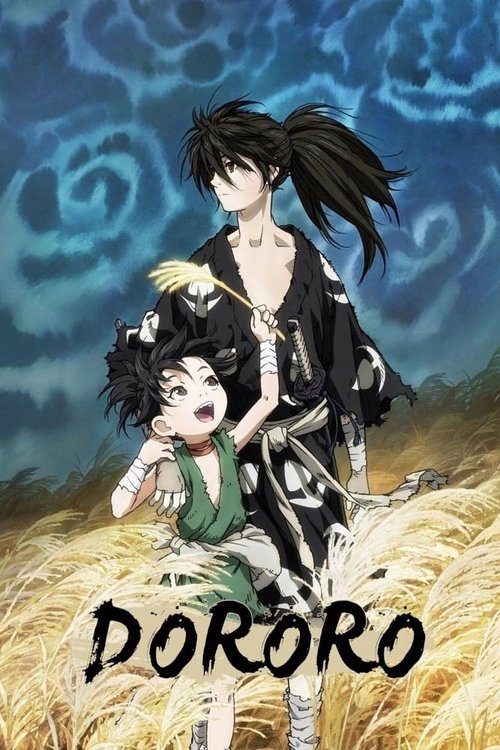
Ask Your Own Question
What is the plot?
In the late Edo period of Japan, we are introduced to Manji, a skilled samurai who is haunted by the memory of his sister, who was killed by a group of bandits. After a fierce battle, he is mortally wounded but is saved by a mysterious woman named Yaobikuni, who grants him immortality through a blood ritual involving mystical worms. Manji is now cursed to live forever, unable to die, and he struggles with the burden of his immortality and the guilt of not being able to save his sister.
Years later, Manji encounters Rin Asano, a young girl whose parents were brutally murdered by a group of rogue samurai led by the ruthless Anotsu Kagehisa. Rin is determined to avenge her parents' deaths and seeks out Manji to become her bodyguard. Initially reluctant, Manji is moved by Rin's determination and agrees to protect her, seeing a chance to redeem himself for his past failures.
As they travel together, Rin and Manji develop a bond. Manji teaches Rin how to fight, and she begins to grow stronger and more confident. However, their journey is fraught with danger as Anotsu and his group, the Ittō-ryū, are relentless in their pursuit of Rin. The tension escalates when they encounter a member of the Ittō-ryū, a skilled fighter named Shira, who has a personal vendetta against Manji. A brutal fight ensues, showcasing Manji's combat skills and his immortality as he withstands severe injuries but ultimately defeats Shira.
After the confrontation, Rin and Manji continue their quest for vengeance, but they are constantly on the run. They meet various allies and enemies along the way, including a former member of the Ittō-ryū named Kagehisa, who has his own motives and complicates their journey. The emotional stakes rise as Rin grapples with her desire for revenge and the moral implications of her actions, while Manji reflects on his own past and the meaning of his immortality.
The story takes a darker turn when Rin finally confronts Anotsu. In a climactic battle, she faces him with the skills she has learned from Manji. However, the fight reveals the complexity of their motivations, as Anotsu is not merely a villain but a man driven by his own ideals. The confrontation is intense, with both characters showcasing their fighting prowess, but ultimately, Rin is unable to kill Anotsu, realizing that revenge may not bring her the closure she seeks.
In the aftermath, Rin's internal conflict deepens as she struggles with her feelings towards Manji, who has become a father figure to her. Manji, too, is torn between his protective instincts and the realization that Rin must forge her own path. Their relationship is tested as they face new threats, including the return of Shira, who seeks revenge against Manji for their previous encounter.
The final act of the series culminates in a series of intense battles, where Manji faces off against multiple members of the Ittō-ryū. Each fight is brutal and showcases Manji's immortality as he sustains injuries that would be fatal to any normal person. The choreography of the fights is intricate, with each character's fighting style reflecting their personality and motivations.
As the series reaches its climax, Rin must confront her own feelings of vengeance and the cycle of violence that has consumed her life. In a poignant moment, she chooses to spare Anotsu, breaking the cycle of revenge and violence that has defined her journey. This decision marks a significant turning point for her character, as she embraces a new path forward.
The series concludes with Manji and Rin parting ways, each having grown from their experiences. Manji, still burdened by his immortality, reflects on his journey and the relationships he has formed. Rin, now a stronger and more independent individual, sets out to forge her own destiny, leaving behind the shadows of her past. The final scenes emphasize the themes of redemption, the complexity of human emotions, and the possibility of moving beyond vengeance.
More TV Shows Like This
Browse All TV Shows →What is the ending?
In the ending of the 2019 TV show "Blade of the Immortal," Manji confronts the main antagonist, Kagehisa Anotsu, in a final battle. After a fierce fight, Manji ultimately defeats Anotsu, but not without significant emotional and physical toll. Following the battle, Manji reflects on his journey and the lives lost along the way. He decides to continue living, embracing his immortality with a renewed sense of purpose. Rin, who has grown throughout the series, finds closure and a sense of peace as she moves forward with her life.
As the final episodes unfold, the tension escalates, leading to the climactic confrontation between Manji and Kagehisa Anotsu. The scene opens in a desolate landscape, the air thick with anticipation. Manji, weary yet resolute, stands ready for the inevitable clash. His body bears the scars of countless battles, a testament to his immortality and the burdens he carries. The camera captures the flicker of determination in his eyes, revealing the weight of his past decisions and the lives he has touched.
The fight begins with a flurry of movement, both combatants showcasing their skills. Anotsu, driven by his ambition and the desire to create a new world through strength, attacks with ferocity. Manji counters with a blend of agility and experience, each strike echoing the pain of his past. The choreography of the fight is intense, with each blow resonating with the emotional stakes at play. As they exchange blows, flashbacks of Manji's journey flicker through his mind--memories of Rin, the people he has lost, and the purpose he has sought.
As the battle rages on, the environment around them becomes a reflection of their inner turmoil. The ground is stained with the remnants of their conflict, symbolizing the lives affected by their choices. Manji's resolve begins to waver as he recalls Rin's innocence and the hope she represents. This moment of vulnerability is palpable; the audience can feel the weight of his immortality pressing down on him, a curse that has led to so much suffering.
In a pivotal moment, Manji gains the upper hand, using his knowledge of Anotsu's fighting style against him. With a final, decisive strike, he defeats Anotsu, who falls to the ground, defeated and broken. The camera lingers on Manji's face, a mixture of relief and sorrow washing over him. He has won, but at what cost? The victory feels hollow as he contemplates the lives lost in the pursuit of vengeance and justice.
After the battle, the scene shifts to a quieter moment. Manji stands alone, the weight of his immortality heavy on his shoulders. He reflects on his journey, the friends he has lost, and the purpose he has found in protecting Rin. The emotional toll of the fight is evident in his expression; he is a warrior who has fought for so long, yet the victory feels bittersweet.
Meanwhile, Rin, who has been a constant presence throughout Manji's journey, finds herself at a crossroads. She has witnessed the brutality of the world and the consequences of revenge. In the aftermath of the battle, she stands in a serene landscape, contemplating her future. The camera captures her growth; she is no longer the naive girl who sought vengeance for her parents' deaths. Instead, she embodies resilience and strength, ready to forge her own path.
In the final moments, Manji approaches Rin, and their eyes meet. There is a silent understanding between them, a bond forged through shared pain and growth. Manji, having defeated Anotsu, realizes that his immortality can be a gift rather than a curse. He chooses to embrace life, to protect those who remain, and to honor the memories of those he has lost.
The series concludes with a sense of hope. Manji walks alongside Rin, both characters transformed by their experiences. The camera pulls back, revealing the vast world before them, filled with possibilities. The ending encapsulates the themes of redemption, the weight of immortality, and the importance of moving forward despite the scars of the past. Each character's fate is intertwined, leaving the audience with a poignant reminder of the journey they have shared.
Is there a post-credit scene?
In the 2019 adaptation of "Blade of the Immortal," there is indeed a post-credit scene that adds a poignant layer to the story.
As the credits roll, the scene opens with a serene landscape, the sun setting over a tranquil river. The camera pans slowly, revealing a peaceful environment that contrasts sharply with the violence and turmoil that preceded it.
In this quiet moment, we see Manji, the immortal swordsman, standing by the riverbank. His expression is contemplative, a mix of weariness and a hint of hope. The weight of his past actions and the lives he has taken hangs heavily on him, yet there is a sense of resolution in his demeanor.
As he gazes into the water, the reflection of his face ripples, symbolizing the changes he has undergone throughout his journey. The scene captures his internal struggle--while he is burdened by the memories of his violent past, there is also a glimmer of possibility for redemption.
Suddenly, the sound of footsteps interrupts the tranquility. A young girl approaches, reminiscent of Rin, the girl he had vowed to protect. She carries a small flower, and as she offers it to Manji, there is a moment of connection that transcends words. This gesture signifies hope and the potential for new beginnings, suggesting that even in a world filled with suffering, there can be moments of beauty and kindness.
The scene fades to black, leaving viewers with a lingering sense of Manji's ongoing journey and the idea that redemption is possible, even for someone as deeply scarred as he is. This post-credit moment encapsulates the themes of the series--violence, redemption, and the search for peace in a tumultuous world.
What motivates Manji to protect Rin throughout the series?
Manji, the immortal swordsman, is driven by a deep sense of guilt and a desire for redemption after the violent past that haunts him. His initial motivation to protect Rin stems from a promise he makes to her dying father, who was a friend of his. As he spends time with Rin, he becomes increasingly protective of her, seeing her as a chance to atone for his past sins and to find a sense of purpose in his otherwise aimless existence.
How does Rin's character develop throughout the series?
Rin starts as a vulnerable and naive girl seeking revenge for her parents' murder. As the series progresses, she transforms into a determined and skilled fighter, learning to wield a sword and confront her enemies. Her journey is marked by emotional turmoil, as she grapples with the weight of vengeance and the moral implications of her quest, ultimately leading her to question the cycle of violence.
What is the significance of the 'blood worms' in Manji's immortality?
The 'blood worms' are a crucial element of Manji's immortality, as they are supernatural creatures that reside within him, healing his wounds and allowing him to recover from fatal injuries. This unique aspect of his condition serves as both a blessing and a curse, as it grants him the ability to survive but also ties him to a life of endless suffering and conflict, forcing him to confront the consequences of his immortality.
Who are the main antagonists that Manji and Rin face, and what are their motivations?
The primary antagonists are the members of the Itto-ryu, a ruthless group of swordsmen led by the charismatic and sadistic Kagehisa Anotsu. Their motivation is to establish a new school of swordsmanship that prioritizes strength and dominance over traditional values. Each member of the Itto-ryu has their own personal vendettas and ambitions, which often clash with Manji and Rin's quest for justice, creating intense confrontations filled with emotional stakes.
What role does the theme of revenge play in Rin's journey?
Revenge is a central theme in Rin's journey, initially driving her to seek out the Itto-ryu and avenge her parents' deaths. However, as she encounters the harsh realities of violence and loss, her understanding of revenge evolves. She begins to realize that it can lead to a cycle of hatred and suffering, prompting her to reconsider her motivations and the impact of her actions on herself and those around her.
Is this family friendly?
"Blade of the Immortal," produced in 2019, is not considered family-friendly due to its mature themes and graphic content. Here are some potentially objectionable or upsetting aspects that may affect children or sensitive viewers:
-
Graphic Violence: The series features intense and explicit scenes of violence, including sword fights, dismemberment, and bloodshed. The portrayal of combat is often brutal and realistic.
-
Death and Suffering: Characters experience significant trauma, including the loss of loved ones and the emotional toll of violence. This can be distressing for younger viewers.
-
Themes of Revenge: The narrative revolves around themes of vengeance and moral ambiguity, which may be complex and unsettling for children to understand.
-
Dark Atmosphere: The overall tone of the show is dark and somber, with a focus on despair and the consequences of violence, which may be inappropriate for younger audiences.
-
Mature Language: The dialogue includes strong language and adult themes that may not be suitable for children.
-
Emotional Turmoil: Characters grapple with deep emotional pain, guilt, and existential questions, which may be heavy for sensitive viewers.
These elements contribute to a viewing experience that is more appropriate for mature audiences rather than children.




















